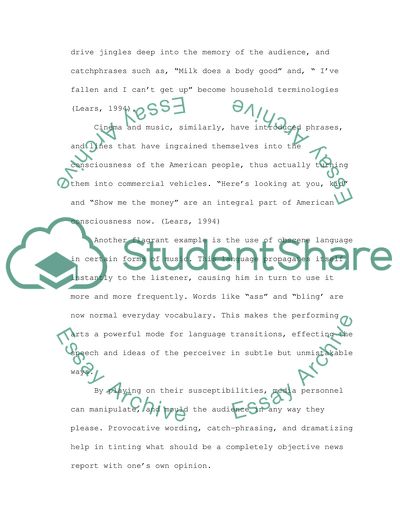Cite this document
(The Impact of Media Language on Audiences Research Paper, n.d.)
The Impact of Media Language on Audiences Research Paper. Retrieved from https://studentshare.org/media/1704386-essay-on-language-media
The Impact of Media Language on Audiences Research Paper. Retrieved from https://studentshare.org/media/1704386-essay-on-language-media
(The Impact of Media Language on Audiences Research Paper)
The Impact of Media Language on Audiences Research Paper. https://studentshare.org/media/1704386-essay-on-language-media.
The Impact of Media Language on Audiences Research Paper. https://studentshare.org/media/1704386-essay-on-language-media.
“The Impact of Media Language on Audiences Research Paper”, n.d. https://studentshare.org/media/1704386-essay-on-language-media.


